
Introduction
Are you grappling with the decision between a tooth implant and a dental bridge? Selecting the most suitable option for tooth replacement is pivotal for maintaining optimal oral health and overall well-being. In this comprehensive comparison of tooth implants and dental bridges, we aim to elucidate their disparities and advantages, empowering you to make a well-informed decision. Whether you prioritize durability, aesthetics, or functionality, understanding the nuances between these two dental solutions is paramount in achieving the best outcome for your dental needs. By delving into the intricacies of tooth implant vs dental bridge, you can embark on your journey towards restoring your smile with confidence and clarity.
Understanding Tooth Implants VS Dental Bridges
Tooth implants and dental bridges are both popular options for replacing missing teeth, but they differ in their approach and long-term effects. Tooth implants are considered the gold standard for tooth replacement as they provide a permanent and natural-looking solution. These implants consist of a titanium post that is surgically placed into the jawbone, acting as a replacement for the tooth root. A custom-made crown is then attached to the post, creating a seamless and functional replacement tooth.
On the other hand, dental bridges are a non-surgical option that uses adjacent teeth as supports for the replacement tooth. The bridge consists of a false tooth (pontic) that is fused between two dental crowns. These crowns are then placed on the adjacent teeth, anchoring the bridge in place. While they are more affordable and require less time to complete compared to implants, bridges may not be suitable for everyone.
Pros and Cons of Tooth Implants
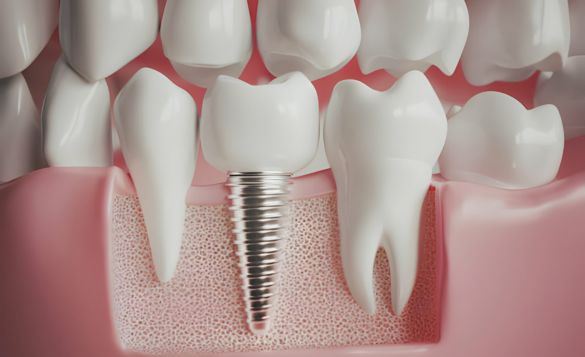
Tooth implants offer numerous advantages that make them a popular choice for many individuals. One of the main benefits is their stability and longevity. Since implants are securely anchored to the jawbone, they provide a strong and stable foundation for the replacement tooth. This allows for natural chewing and speaking abilities, without the worry of the tooth becoming loose or shifting over time.
Another advantage of tooth implants is their ability to preserve the jawbone. When a tooth is missing, the underlying jawbone can deteriorate over time. Implants stimulate the bone, preventing bone loss and preserving the overall structure of the face. Additionally, implants look and feel like natural teeth, providing an aesthetically pleasing result.
However, tooth implants do have some drawbacks. One of the main concerns is the cost. Implants tend to be more expensive compared to dental bridges, primarily due to the surgical procedure involved. Additionally, the implant process can take several months, as it requires time for the jawbone to heal and fuse with the implant post. This may not be ideal for individuals looking for a quick tooth replacement solution.
Pros and Cons of Dental Bridges
Dental bridges, while not as permanent as implants, have their own set of advantages. One of the biggest benefits is their affordability. Bridges are generally more cost-effective compared to implants, making them a popular choice for individuals on a tighter budget. Additionally, the bridge procedure is less invasive and can be completed in a shorter amount of time compared to implants.
Another advantage of dental bridges is their versatility. They can be used to replace one or more missing teeth, depending on the specific situation. Bridges also provide immediate results, allowing individuals to regain their smile and restore their ability to chew and speak properly.
However, dental bridges also have some limitations. Since they rely on adjacent teeth for support, these teeth may need to be modified by removing some enamel to accommodate the crowns. This can weaken the natural teeth and increase the risk of decay or other dental issues. Dental bridges also have a shorter lifespan compared to implants, typically lasting between 5 to 15 years before they may need to be replaced.
Factors to Consider When Choosing
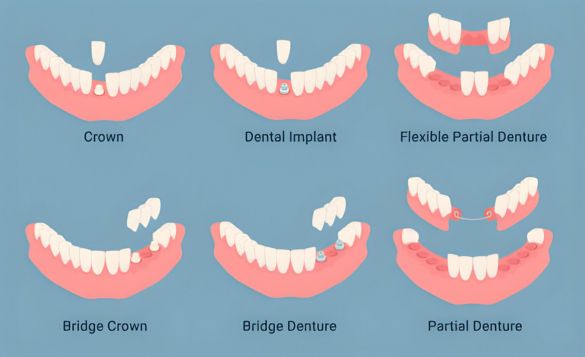
When deciding between tooth implants and dental bridges, there are several factors to consider. The first is your overall oral health. If you have underlying dental issues such as gum disease or insufficient bone density, tooth implants may not be a suitable option. In such cases, dental bridges may be a more viable choice.
Another factor to consider is your budget. Tooth implants tend to be more expensive upfront, but they offer long-term benefits that may outweigh the initial cost. Dental bridges, on the other hand, provide a more affordable option for those with budget constraints.
The number of missing teeth also plays a role in the decision-making process. If you have multiple missing teeth in a row, a dental bridge may be a more practical solution. However, if you only have one missing tooth or multiple missing teeth that are not adjacent, tooth implants may be the better choice.
Lastly, it’s essential to consider your long-term goals and preferences. If you value a permanent and natural-looking solution that requires minimal maintenance, tooth implants may be the ideal choice. On the other hand, if you prefer a more affordable and quicker option that still provides satisfactory results, dental bridges may be the better fit.
The Tooth Implant Procedure
The tooth implant procedure is a multi-step process that requires careful planning and precision. It typically involves the following steps:
Initial Consultation: During the first visit, your dentist or oral surgeon will evaluate your oral health, take X-rays, and discuss your treatment options. They will also assess the condition of your jawbone to determine if it can support an implant.
Implant Placement: If you are a suitable candidate for implants, the next step is to surgically place the implant post into your jawbone. This is typically done under local anesthesia, and the post is left to heal and fuse with the bone in a process called osseointegration.
Abutment Placement: Once the implant has fused with the jawbone (usually after a few months), an abutment is attached to the implant post. This serves as a connector between the implant and the crown.
Crown Placement: Finally, a custom-made crown is placed on top of the abutment, completing the tooth restoration process. The crown is designed to match the color, shape, and size of your natural teeth, ensuring a seamless and natural-looking result.
The Dental Bridge Procedure

The dental bridge procedure is a less invasive alternative to tooth implants. It involves the following steps:
Preparation of Adjacent Teeth: To prepare for the bridge placement, the adjacent teeth are reshaped by removing some enamel. This is necessary to create space for the dental crowns that will support the bridge.
Impressions: Your dentist will take impressions of your teeth, which will be sent to a dental laboratory to create your custom bridge.
Temporary Bridge:
Bridge Placement: Once your permanent bridge is ready, it will be carefully placed and adjusted to ensure a proper fit. The crowns on the adjacent teeth are cemented in place, anchoring the bridge securely.
Cost Comparison: Tooth Implants vs Dental Bridges
The cost of tooth implants and dental bridges can vary depending on several factors, including the number of missing teeth, location, and the specific dental professional you choose. In general, tooth implants tend to be more expensive compared to dental bridges.
Tooth implants can range anywhere from $3,000 to $6,000 per implant, not including additional costs for the abutment and crown. If multiple implants are required, the overall cost can increase significantly. Dental bridges, on the other hand, can range from $500 to $1,200 per tooth, with the total cost depending on the number of teeth being replaced.
It’s important to note that these costs are estimates and can vary widely depending on individual circumstances and geographical location. It is always recommended to consult with your dentist or oral surgeon to get an accurate cost assessment for your specific case.
Long-Term Maintenance and Care
Both tooth implants and dental bridges require proper maintenance and care to ensure their longevity and success. Here are some guidelines to follow:
Tooth Implants: Practice good oral hygiene by brushing at least twice a day and flossing daily. – Schedule regular dental check-ups and cleanings to monitor the health of your implant and surrounding teeth. – Avoid chewing on hard objects or using your teeth to open packages to prevent damage to the implant. – Quit smoking, as smoking can increase the risk of implant failure. – If you participate in contact sports or activities that may pose a risk of facial injury, consider wearing a mouthguard to protect your implant.
Dental Bridges: Maintain good oral hygiene by brushing your teeth twice a day and flossing daily, paying extra attention to the area around the bridge. – Schedule regular dental check-ups and cleanings to ensure the bridge is in good condition and to detect any potential issues early on. – Avoid chewing on sticky or hard foods that may cause the bridge to become dislodged or damaged.
Conclusion
Choosing between a tooth implant and a dental bridge is a decision that should be made in consultation with your dentist or oral surgeon. By considering factors such as your oral health, budget, number of missing teeth, and long-term goals, you can make an informed decision that suits your unique needs and preferences.
Tooth implants offer a permanent and natural-looking solution that provides stability, preserves the jawbone, and offers long-term benefits. However, they come with a higher upfront cost and a lengthier treatment process.
Dental bridges, on the other hand, are a more affordable and quicker option that still provides satisfactory results. They may be suitable for individuals with budget constraints or those looking for an immediate tooth replacement solution.
People also ask
The choice between a dental bridge and an implant depends on various factors such as oral health, budget, and personal preferences. Dental implants are often considered the superior option as they offer a permanent solution, preserve jawbone health, and closely mimic the look and feel of natural teeth. However, bridges may be more suitable for some individuals due to their affordability and faster treatment process.
While dental bridges can be an effective tooth replacement option, they have some drawbacks. One of the main reasons a dental bridge may not be recommended is that it requires the alteration of adjacent healthy teeth for support. Additionally, bridges do not prevent bone loss in the jaw, which can occur after tooth loss. In cases where the adjacent teeth are healthy and untouched, dental implants may be a preferred option.
Dental bridges are considered a safe and commonly performed dental procedure when carried out by a qualified dental professional. However, like any dental treatment, there are potential risks and complications, such as tooth decay, gum disease, and structural issues with the bridge over time. It is essential to consult with your dentist to determine if a dental bridge is the right choice for you based on your individual oral health needs.
The decision to get a bridge on a front tooth or an implant depends on several factors, including the condition of the surrounding teeth, bone health, and aesthetic considerations. In general, dental implants are often preferred for front teeth as they provide a more natural appearance and greater stability. However, if the adjacent teeth are healthy and suitable for supporting a bridge, this may also be a viable option. It is best to consult with your dentist to determine the most appropriate treatment for your specific case.








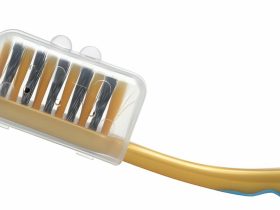
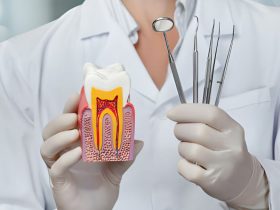


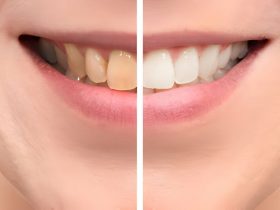
Leave a Reply